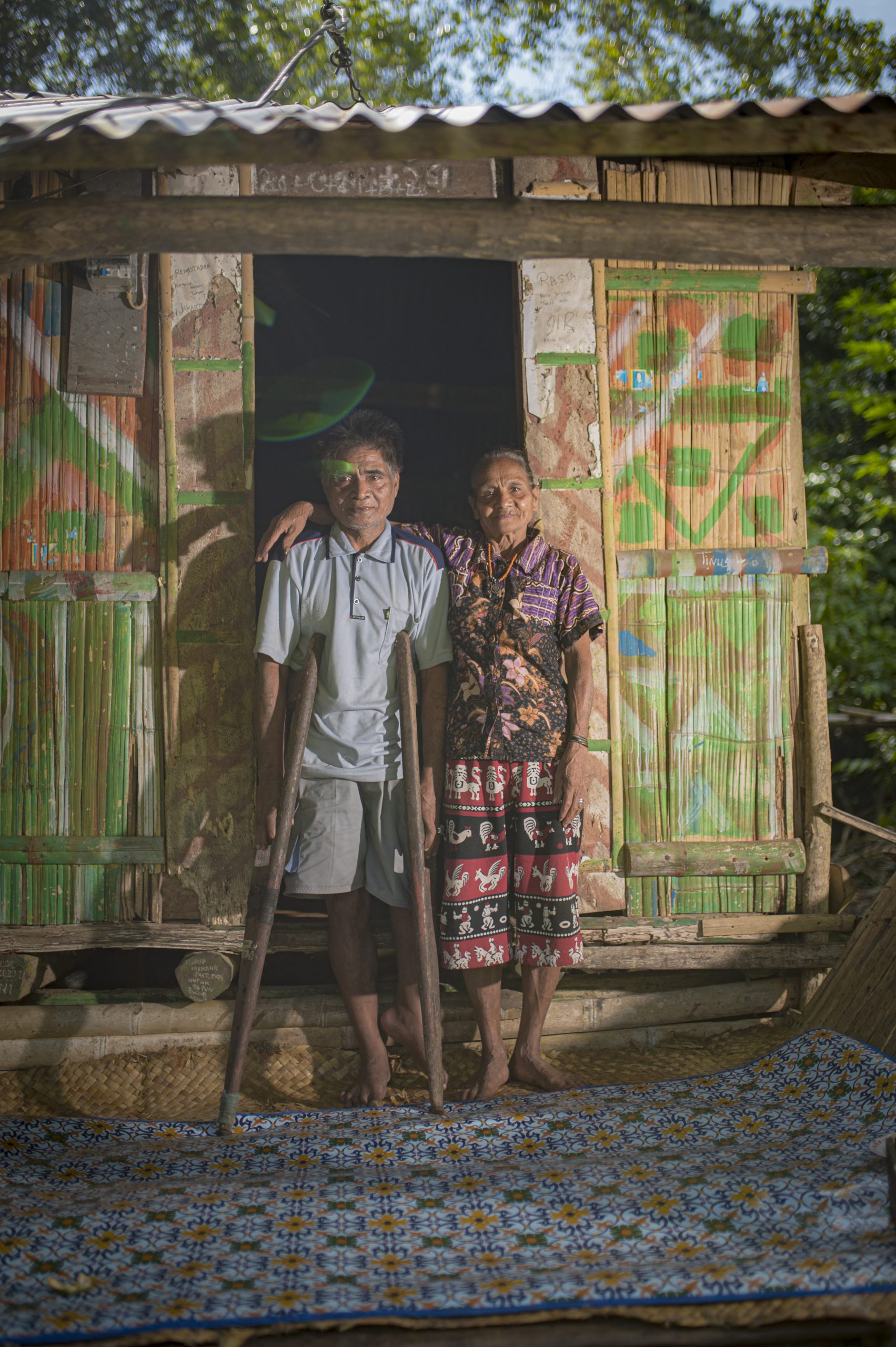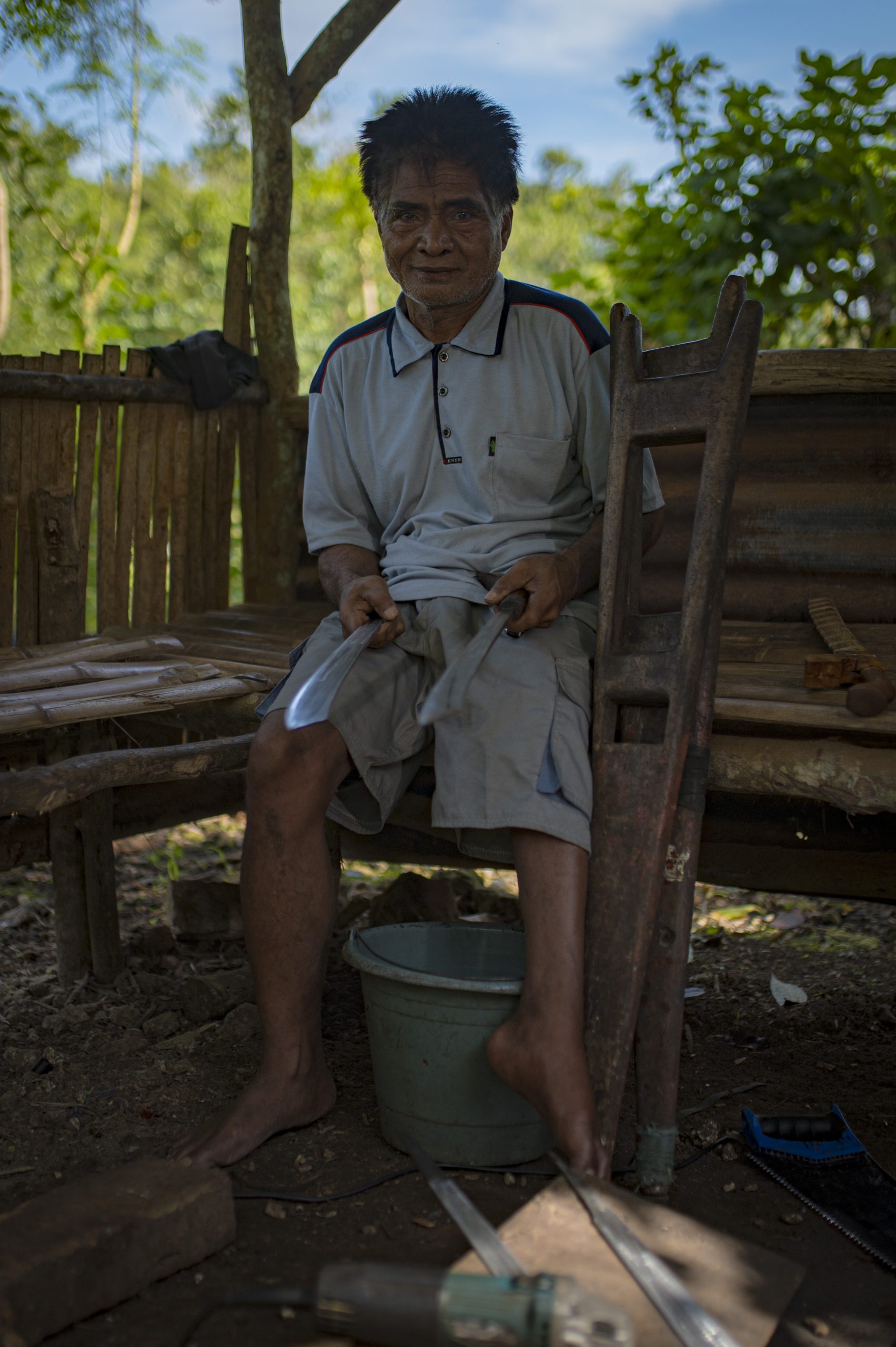
In front of a stilt house in Pandua Tana, Southwest Sumba, East Nusa Tenggara, stood a small square hall equipped with wooden seats made of planks. Right next to it is a diverged road leading to other villages.
In the small hall, laying a cord carrying electricity to operate the grinding machine and the hand smoothing machine. In mid-May 2025, in that place, sparks from the grinding machine that was spinning fast made a friction sound that could be disturbing to the ears.
This is one of the places where machetes are made. A must-visit activity when you are in Sumba. It will blow your mind. Only in Sumba, men walk around casually carrying machetes tied to their waists. Katopo, in the local language. This is one of the identities of the community, besides the houses with their gracefully towering roofs and the beautiful clothes.
Machete is an identity, used daily, and for traditional procession. That is why Martinus Bili Malo, 71 years old, a machete craftsman, smiles happily when someone visits him to talk about machetes.
He loves his job, both as the heir of the knowledge and the breadwinner of the family. “I built that house from making machetes,” he said.
Martinus proudly pointed at the stilt house before him. The house where he raised his five children. His main activity was gardening. He planted corn, coffee, and bananas. Then, a motorbike accident happened in the early 2000s, paralyzing and shrinking his left leg.
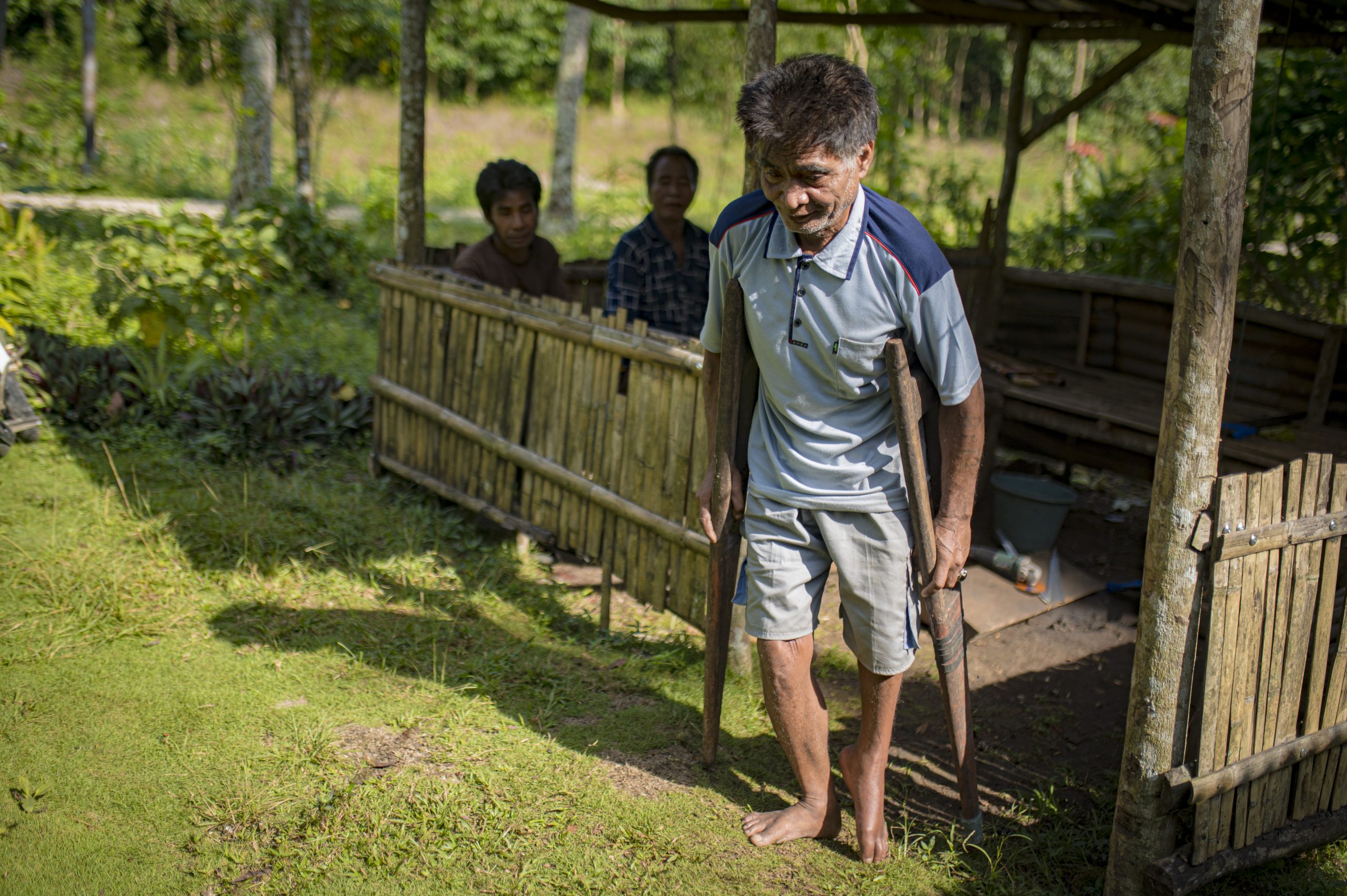
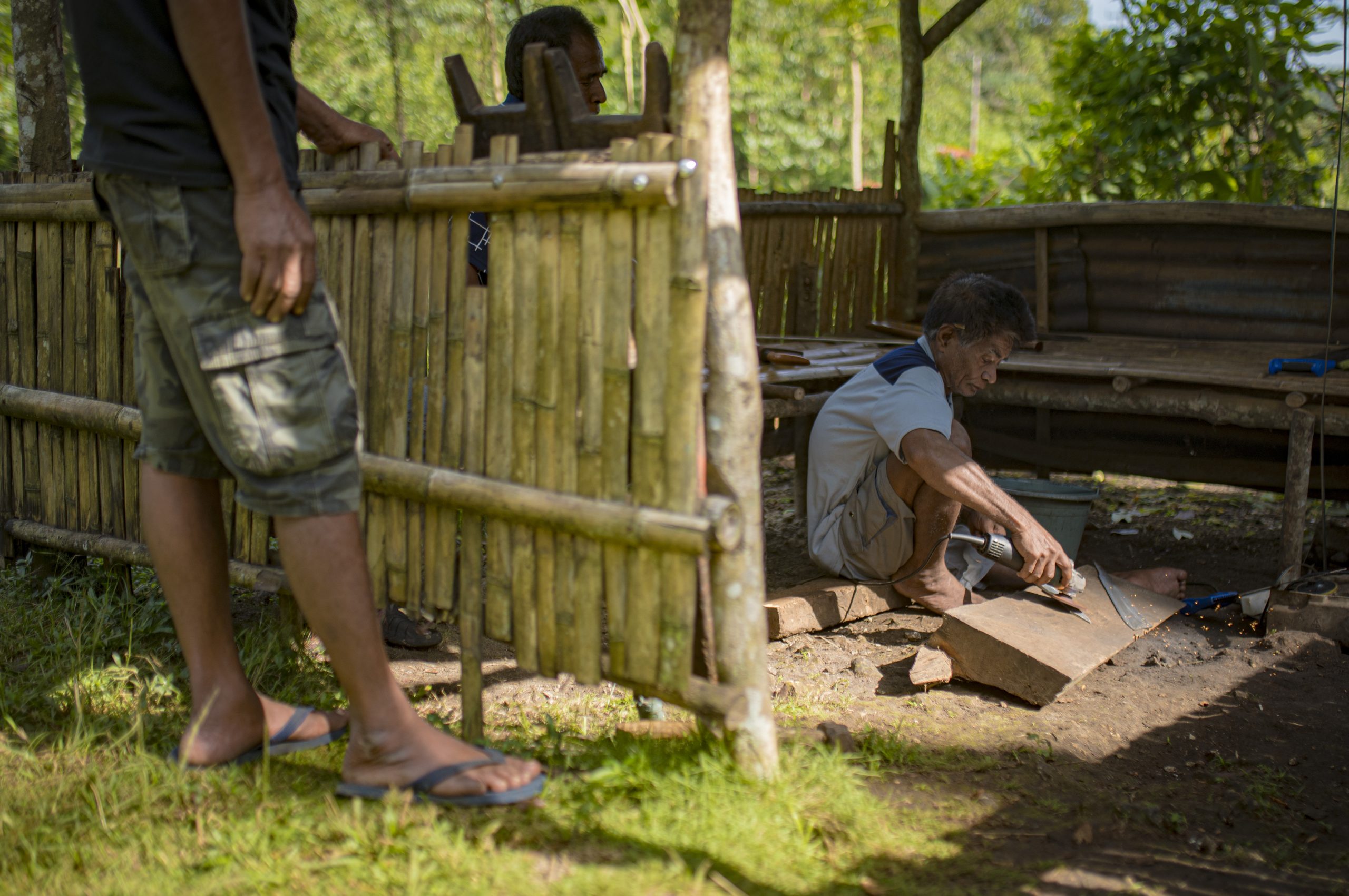
Martinus can stand and walk using two crutches he made from wood. He said, life goes on, and regretting the past only drowns him in sadness.
Slowly, he rose, maximizing his potential and knowledge he had when he was physically healthy. The machete was his choice. The Sumbanese are familiar with machetes from early childhood. Everyone knows how machetes are made and the quality of good and bad machetes.
He bought the titi iron–iron plate used as a car shock-breaker forged by the craftsmen, as a start. Martinus worked in his veranda using a manual file. One iron plate, which was not yet shaped like a machete, took two weeks.
Martinus rubbed it relentlessly. Then sanded it. Sometimes his hands cramped, and his shoulders ached. His feet, used as supports to hold the iron, also tingled. His palms sometimes blistered and went numb. He smiled while recalling the journey. “Now, simply pressing the on and off button,” he said while showing his grinding machine.
Raise with BangKIT
In 2024, the Inclusive Rural Community Livelihood Development Program in Eastern Indonesia (BangKIT) from BaKTI Foundation visited Pandua Tana. Field facilitators and assistants, along with the village administration and the district government, met Martinus.
BangKIT then invited Martinus to a knowledge-sharing event. Martinus was shocked and got his mind opened. In October 2024, he and four of his fellow villagers formed a group called Beina Moripa – meaning love to live or live happily.
The Beina Moripa group made machetes together. The silent work done by Martinus alone in the past became more lively. The group members helped each other, shaping the iron into machetes, making handles and sheaths for the machetes. Production accelerated.
BangKIT then provided them with in-kind stimulus assistance as grinding machine, smoothing machine, and a group hall. The Beina Moripa group members were happy with the assistance given in the form of goods and not money. “We are happy with the in-kind assistance, not money,” said Daud Tamo Amalo, a member of the Beina Moripa group.
Daud said, receiving cash assistance may make us feel short as we start getting things we desire, and not the ones we need. “After forming the group, BangKIT team always comes to check on our progress. They do not leave us,” he continued.

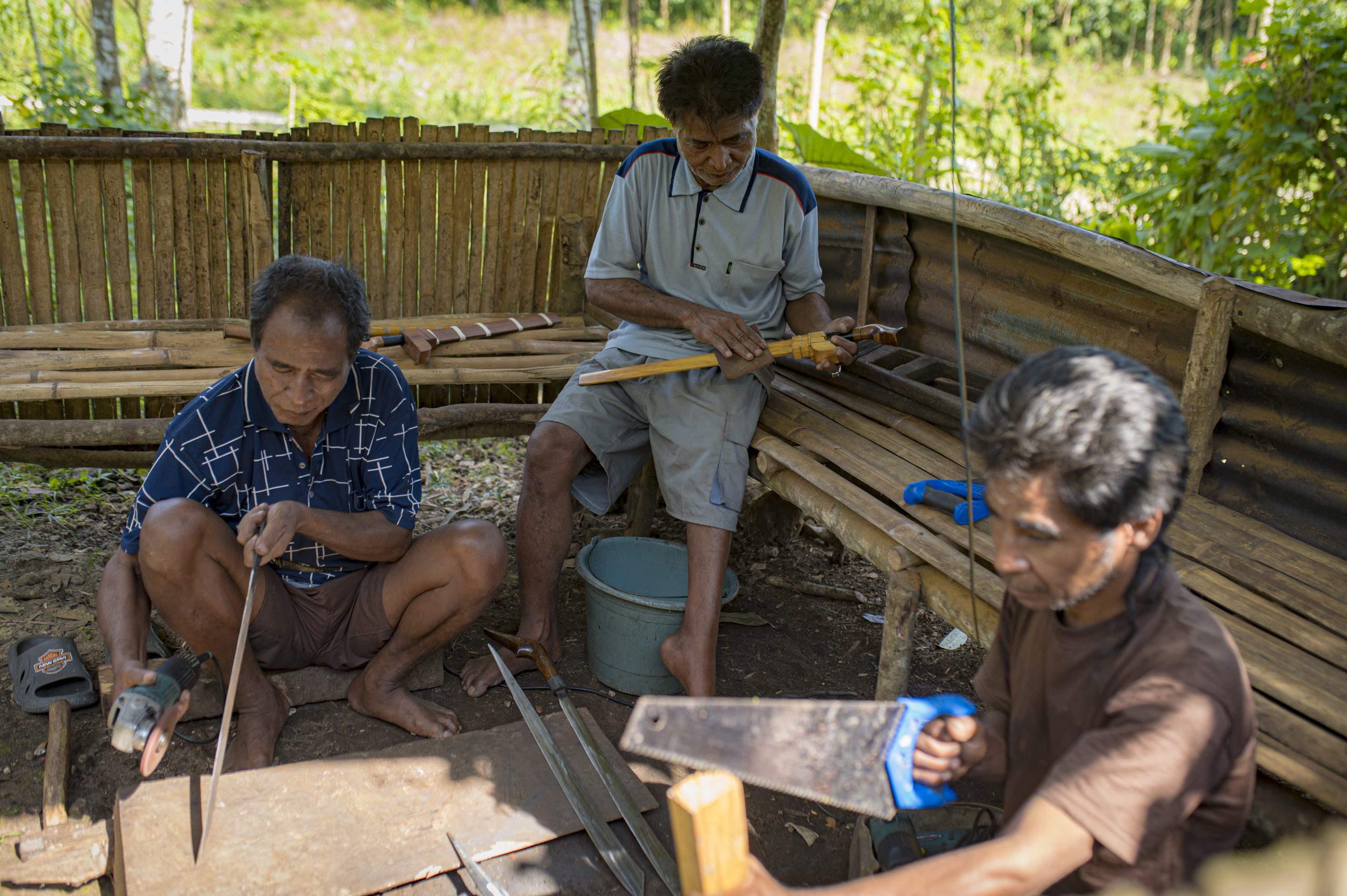
Beina Moripa group is now able to produce up to six machetes in a month. One machete costs around 250 thousand rupiahs to 1.5 million rupiahs. This group then agreed to share the sales equally, taking a certain amount out of each share to cover the production costs.
Martinus, as the group leader, did not just cut out the shares for production. He cut out the cost evenly for transparency.
Details of the production cost, raw material for the forged shock-breaker plate per bar costs 70 thousand to 85 thousand rupiahs; electricity token, 100 thousand rupiahs for 15 days, if it runs every day.
Melkianus Dangnga Ole, secretary of Pandua Tana Village, was proud to see the Beina Moripa group. “This group is alive. This hall – the production site – is never quiet. There are always people, either those who want to see the process of making machetes, or those who come to buy,” he said.
The Beina Moripa group also helps villagers with the distance. “In the past, if people wanted to buy machetes, they had to go to another village. Now we are close by. They can order the one they need, and the price is certainly cheaper than in the market,” said Melkianus.
The demand for machetes in the Sumba community, especially in Southwest Sumba, is very high. Machetes are not only for gardening and household needs. Machetes are the most important items in the wedding procession. Melkianus said, when a family wants to propose to a woman, they need a lot of machetes. The groom’s family will hand over the machetes first to open a conversation, which the woman will then reciprocate by giving cloth.
One wedding party needs at least 40 machetes. In certain circumstances, they can have hundreds of machetes. Oskarius Tamo Amabili confirmed this. “If that’s the case, the orders can be overwhelming,” he said.
The members of the Beina Moripa group laughed, saying that not every day people get married.
In the machete production hall, the atmosphere was cheerful. Melkianus showed off a machete with a shiny black buffalo horn handle. Martinus was polishing the machete he estimated to be ready in three days. “BangKIT team helped us. They are from outside Sumba, coming to help and appreciate us. They want to see us progressing,” he said.
“We (Beina Moripa) have a plan to get another machine. We have been saving money,”
“People like me, who cannot go to the garden, are very grateful. We received a good initial capital.”
In another corner of the seating area, Daud confirmed it. He touched four machetes, which were at the finishing stage. “These machetes can be used to cover urgent needs because someone ordered them. We can also sell them without cases and handles,” he said.
